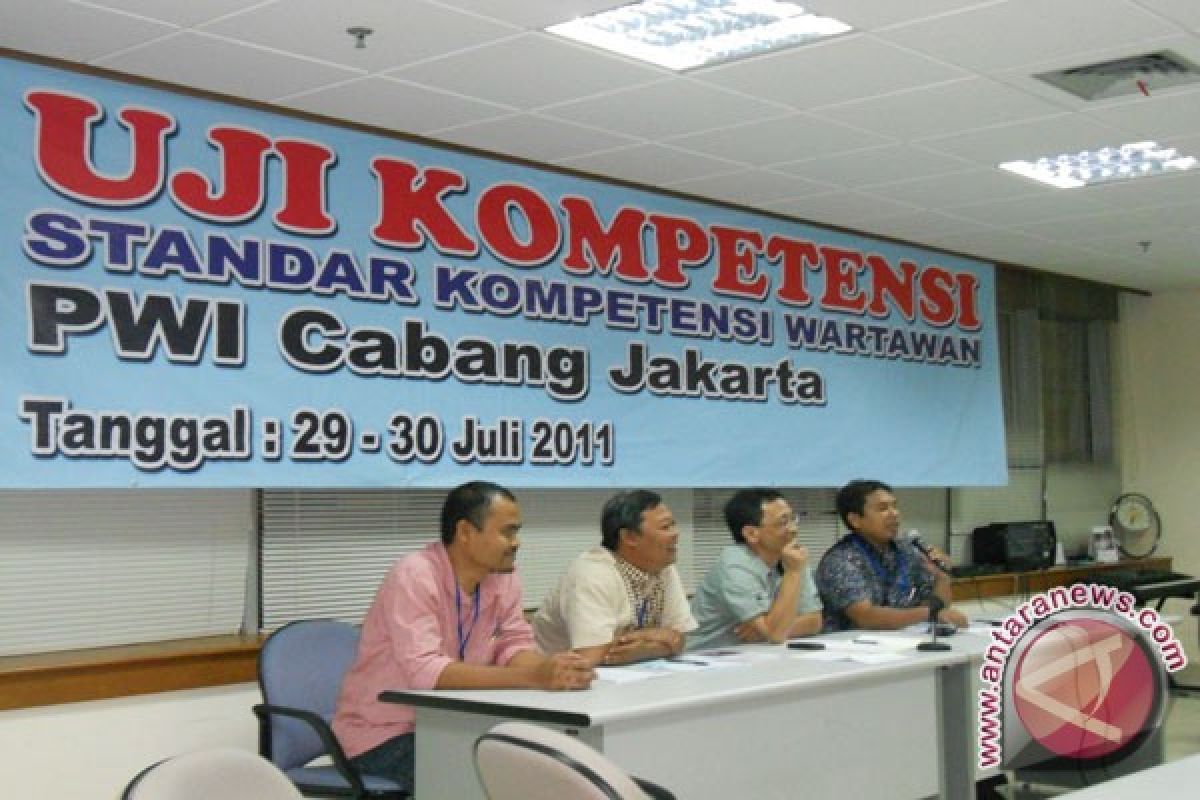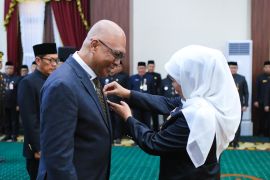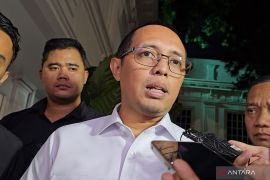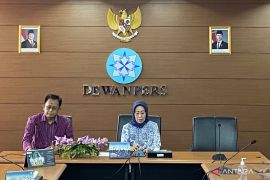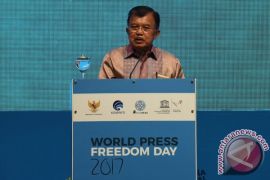"Indonesia is lucky because it can conduct such a test."Manila (ANTARA News) - Indonesia`s conducting competence tests for its journalists has attracted the intention of senior Philippine journalists.
"Indonesia is lucky because it can conduct such a test, which is actually needed. For us here it is difficult to implement because Philippine journalists are free," Arlene Burgos, head of the News Affairs of the Philippine TV `ABS CBN`, said here.
He was asked to comment in Quezon City near Manila about the competence test being required for journalists to take in Indonesia.
Arlene said a journalist, wherever he or she is, is required to work professionally and to know the ethics and responsibility of his or her work
If a journalist is not competent in his or her field, they will always face potential problems.
According to Arlene, the idea of holding competence tests for journalists is a good step since it has never occurred in other countries.
Therefore, it could be carried out in other countries, such as the Philippines, as long as the proposal comes from the journalists association itself, as in Indonesia.
However, noted Philippine investigative journalist Luz Rimban expressed confusion about why the competence test, which has not been embraced by members of the press, would be implemented in Indonesia.
"I am surprised to hear that even the Indonesian Independent Journalist Association (AJI) also agreed to it," he said.
Luz said the competence test must have been created to differentiate between real journalists and unqualified reporters. He added that he had many friends in the AJI.
"We also have a serious problem here, which is similar to what is called in Indonesia as a `bodrex` reporter (a term usually referring to a reporter looking for an envelop)," said Luz, who is one of the founders of an investigative reporters association in the Philippines.
Luz expressed his disagreement about whether the competence test was related to the need for journalists to be certified, such as doctors, lawyers and accountants, even if they have a profession which, respectively, needed expertise.
He noted that journalistic work was related to the freedom of expression, which was protected by the constitution.
Luz recalled that the competence test should not lead to the government restricting the freedom of the press. But the problem will be different if it is carried out based on the commitment of the press, as in Indonesia.
Dr Violet Valdez, the executive director of the ACFJ (Asian Center for Journalism), hailed the implementation of the competence test for Indonesian journalists, saying it was something interesting to study.
The decision to conduct competence tests for journalists was signed by leaders of the nation's press organizations on January 26, 2010.
Since the launching of the program in Indonesia, over 2,500 journalists have undergone the test.
(Uu.A014/INE/KR-BSR)
Editor: Priyambodo RH
Copyright © ANTARA 2012
